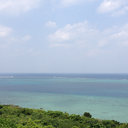Fatigue in survivors of childhood acute lymphoblastic and myeloid leukemia in Japan.
Keywords
Abstract
BACKGROUND
Fatigue in cancer survivors is a serious problem in pediatric oncology, but reports on this issue are limited, especially in Asian countries.
METHODS
Sixty-three patients with acute lymphoblastic leukemia and 18 patients with acute myeloid leukemia who attended a follow-up outpatient clinic were enrolled. Participants were required to be >8 years of age, in remission, and without any cancer treatment for at least the previous 1 year. A control group consisted of 243 subjects whose age and gender were matched with the patient group. A questionnaire consisting of 12 items was devised for fatigue measurement.
RESULTS
Principal factor analysis identified three dimensions, defined as physical fatigue, decreased function, and altered mood. The mean total and the three fatigue dimension scores tended to be higher in the control group, but significant differences between the scores were seen only in the total and physical fatigue scores. Multiple regression analysis indicated an association of present older age or shorter duration after completion of treatment with total and physical fatigue, and an association of presence of total body irradiation with decreased function.
CONCLUSIONS
Pediatric leukemia survivors in Japan experience equal or less fatigue compared with that of controls in different fatigue dimensions. Elucidation of underlying mechanisms of cancer-related fatigue including the differences of cultural background among different countries is necessary for future study of this issue.


